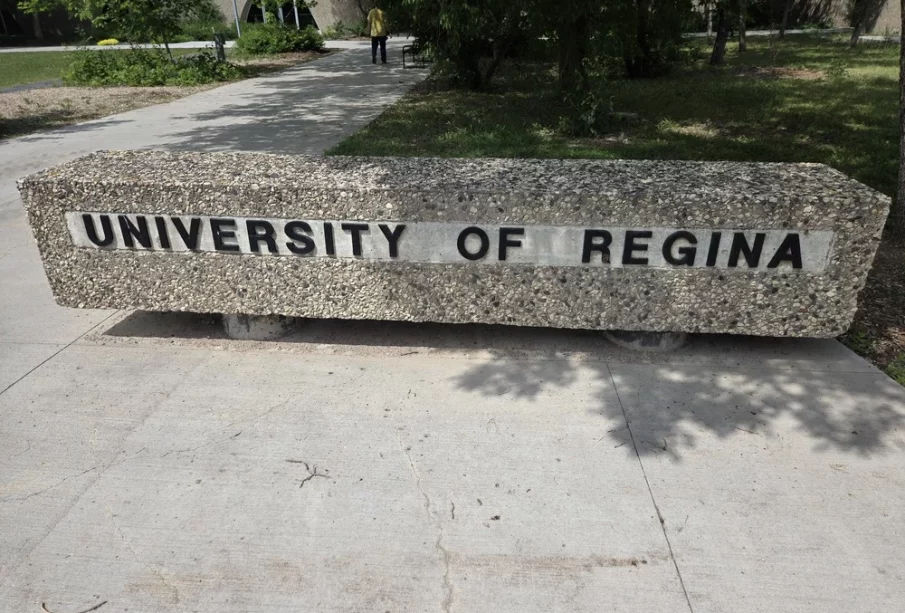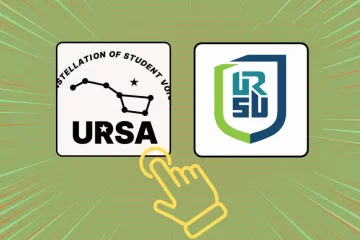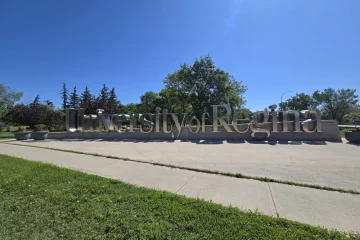A roadmap to elevate research, students’ experience, and become leaders in reconciliation
Dr Aziz Douai, dean for the Faculty of Graduate Studies and Research (FGSR) at the University of Regina (UofR), has been tasked to lead the university’s next strategic plan.
Douai and a committee of selected members have been put in charge of drafting a new strategic plan for the next 10 years. Their plan is an ambitious one as Douai said they are looking to make significant changes that will ultimately be improving the students’ experience at the institution. Some areas of focus are reconciliation, accessibility, and graduate research.
When Douai was originally appointed to lead this project, he said he felt a sense of pride. “Personally, it has been a privilege to be involved in this process.”
Why 10 years instead of five?
In terms of why the timeline is long, Douai mentioned the decade gives them a longer time to properly outline what the university will look like. He adds how they are actively looking to “enhance and strengthen” students’ experience.
By creating a long-term plan, Douai acknowledges how it differs from that of a three-year year or even a five-year plan. The time frame allows for drafting a strong and clear path, with a bold vision for the kind of university we want in the future.
Amongst bettering the institution for students, Dr. Douai states there are other focuses too such as advancing research, improving the standards of teaching and learning, and seeking to be a national leader in reconciliation.
Opportunities for students’ voices
Douai said they are looking for student engagement with this new strategic plan and mentioned this is an opportunity for UofR students to amplify their voices. He elaborated by saying it’s a sense of pride for students and emphasized that students should participate in the planning process as the university is their community.
“By making their voice(s) heard, they will shape the strategic vision for the university,” he said.
He reiterated the importance of strengthening student’s experiences by looking at what kinds of services they offer with respect to research experiences and practical and career related services. “[The plan focused on exploring] how can we really ensure that we educate students, not only for [their] career, but [also] for meaningful lives; how can they be leaders,” said Douai.
We have had [a] tremendous response from the survey [with] over 600 [student] participants having completed the survey, which is really great news […] it shows pride in the institution, but also a desire to shape the future of the university. – Dr. Aziz Douai.
Making a history
When speaking of the plan, Douai noted that the UofR is making history. “This is the first time in the history of the university that we’re embarking on a 10-year plan,” he said.
Douai imagines thinking of the university beyond that of just the immediate space. He imagines the UofR as a place that adopts bold ideas and reconfigures itself by achieving the set goals.
To ensure they are taking the necessary steps to achieve their goals, Douai said they have set a consultation schedule and have already had multiple town hall sessions and a launch. In addition, they have a survey that has shown great results and is open until the end of October.
“We have had [a] tremendous response from the survey [with] over 600 [student] participants having completed the survey, which is really great news […] it shows pride in the institution, but also a desire to shape the future of the university,” said Douai.
What’s unique about the plan?
When asked about how this plan differs from ones at other institutions across Canada, Douai highlighted that the 10-year plan at UofR has some similarities to other institutions when it comes to education, research, and community engagement. However, the UofR is different given its location.
“We are located in the prairies, and we want to make sure that our plan speaks to this identity, to this prairie identity, and really serves the priorities of the people of this province,” he said.
Douai spoke to the importance of working closely with the First Nation’s University of Canada (FNUniv), when speaking of reconciliation. “How many universities in the country have a First Nations University? We’re the only university that has that connection,” he said. He highlighted that having a large Indigenous population at the UofR and working towards reconciliation will set their plan apart from other universities.
Global Imprint
Although the new ten-year plan is looking to serve the needs of those within Saskatchewan, Douai noted they are also looking beyond. In terms of global recognition, Douai hopes the university can climb higher in international rankings.
He said, “We want to be a leader in addressing some of the challenges that [we] face as a community here in Saskatchewan, but also globally […] I want us to be recognized as a leader in a specific area.”
Douai acknowledged how this journey that they are about to embark upon is a huge responsibility for him and the committee but was quick to add how it is also an exciting time to have the opportunity to be a part of an ambitious project.
“I want the final document to articulate a clear identity for the university. I want the university to stand for something that will inspire all of us,” he concluded.










